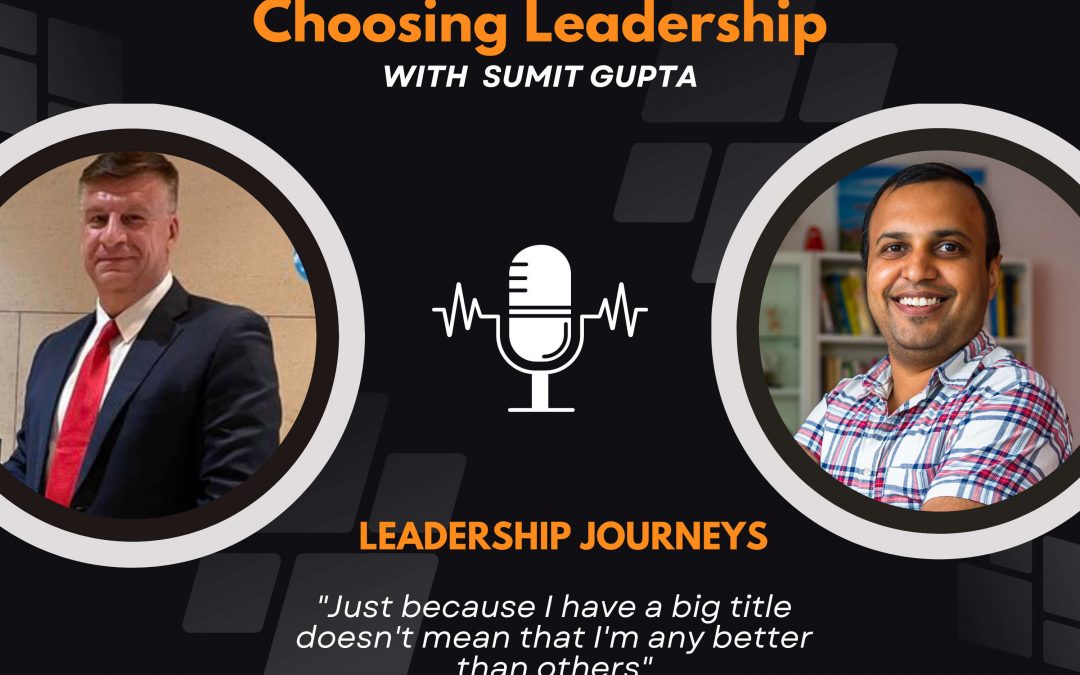This is the Leadership Journey series on the Choosing Leadership Podcast.
I believe we all have a lot to learn from each other’s stories – of where we started, where we are now, and our successes and struggles on the way. With this series of interviews, my attempt is to give leaders an opportunity to share their stories and for all of us to learn from their generous sharing. If you know a leader whom you would like to see celebrated on the show, please send me a message on LinkedIn with their name.
In the interview, we talk about entrepreneurship as a mindset and whether entrepreneurs are born or made. We talk about the transition from a functional or technical role to working with people, which every entrepreneur has to learn at one point. He shares the importance of appreciating people, self-awareness, and to have a healthy relationship with standing out from the crowd.
You can find Karl at the below links
In the interview, Karl shares
- Entrepreneurs are born and not made
- You could probably make a natural entrepreneur a little bit better, but I’m not sure you can train them from scratch.
- My PhD thesis is that, um, entrepreneurism is an undiagnosed spectrum disorder. Uh, a little bit like autism or one of the other, um, psychological trades.
- My parents, uh, my mom and my stepfather, uh, in the end, took three jobs each in order to pay for me to get through school. Um, this led me to really, really want to succeed, but I think I had that natural drive.
- Rubbing shoulders with people that had got lots and lots of money when we didn’t, made me aspire to have more than I would’ve normally aspired for.
- It’s more about appreciating the people that are around you. And it’s definitely about enjoying the. Um, the destination, growing a company and then selling it.
- The growing is where all the fun is and, uh, that’s almost always about the people that you either work with as customers, as suppliers, or as your colleagues in the business.
- The thing about building a business is always about the people, and you’re gonna need to employ some people that maybe have different skill sets from you and therefore different ways of communicating. But that still means you need them in the business, and you’ve gotta be able to identify your own weaknesses and recruit people that complement those.
- The thing about being an entrepreneur is you really got to believe in yourself. Um, in many ways being a CEO and being an entrepreneur are similar in that they’re both very, very lonely jobs.

